SAS selection deaths: Sick recruit 'told to continue'
- Published
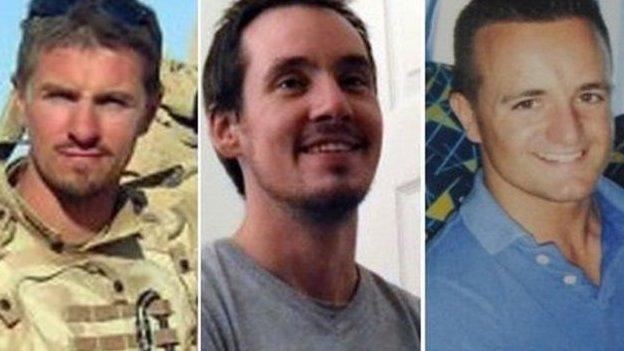
Cpl James Dunsby, L/Cpl Edward Maher and L/Cpl Craig Roberts took part in the exercise in 2013
A soldier said he was told to continue on an SAS reserve selection exercise in the Brecon Beacons despite suffering from heat illness, an inquest heard.
He said he had a nosebleed and had run out of water but was told to continue despite a medic's advice to stop.
The soldier, known as 1W, later suffered kidney and heart damage.
The 16-mile (26km) march on 2013's hottest day resulted in the deaths of L/Cpl Craig Roberts, from Conwy, L/Cpl Edward Maher and Cpl James Dunsby.
All three, who were Army reservists, died from overheating.
The soldier told a West Midlands inquest he was sick, had a nosebleed and had no water, but was told to carry on.
Known as 1W to protect his identity, the man said a medic had advised him to pull out of the hike, but another colleague told him to continue.
The soldier did so but admitted he was confused and his route was "sporadic".
It was one of the hottest days of the year on 13 July 2013 when the soldiers were on the training exercise
He was later helped down the mountain by a walker and taken to hospital to recover from heart and kidney damage.
"If there was a chance I could finish this march, I wasn't going to question this decision making, I was going to finish it," he told the inquest.
"If I'm being told to continue, then I'll continue."
But when he was asked by the lawyer for the Ministry of Defence whether he could have been more frank with the medic, the soldier said: "I think so, yes."
The lawyer went on: "But nonetheless you were directed to continue? That can't be right, can it, because this is a voluntary course - you weren't ordered to continue were you?"
The soldier replied: "I was allowed to continue, I wasn't ordered, that is correct."
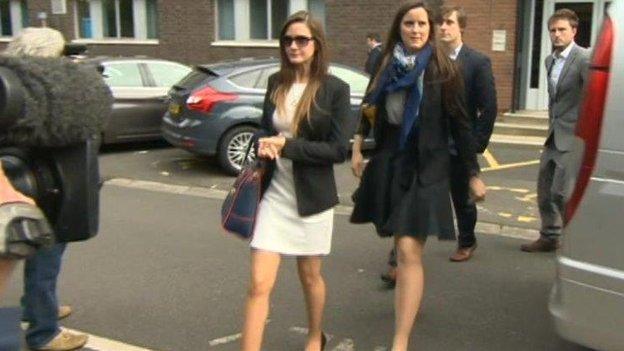
The widow of L/Cpl James Dunsby, Bryher Dunsby (l) arrives at the inquest
Another reservist known as 2P, who was withdrawn from the march for heat exhaustion, told the inquest he and his colleagues were taught to recognise signs of heat illness in the lead up to the march.
He said just before one of the checkpoints his vision began to "sort of cloud".
The reservist said he was not asked about how he was feeling, how much water he had taken on or whether he was "on time".
He said: "If someone had looked me in the eye, they'd have seen what I was feeling in my eyes… struggling to focus."
He said he was a bit "perturbed" by the checkpoint experience as it was different to any other he had experienced.
The reservist said he later collapsed and colleagues pressed his emergency button.
"I remember them considering whether it had worked or not. I remember them asking passers-by if they could use their phone," he said.
"Having done that march numerous times before, same weight, same clothing, the only thing that was different was the increase in heat," he said.
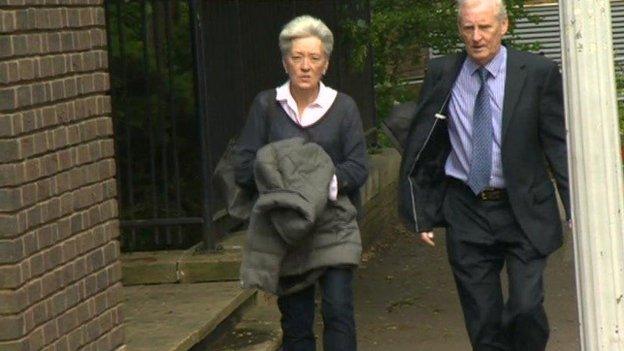
Parents of L/Cpl Edward Maher will hear evidence of how their son died
Earlier, an SAS reservist, known as 1X, said he did not think soaring temperatures would affect the march.
But he was later found unconscious by walkers who fed him food and water.
"I did feel fit and ready and I was fit, above average fitness certainly… I certainly didn't feel that the temperature was going to cause any problems," he said.
On Monday, the inquest heard an Army officer told the family of L/Cpl Roberts there would have been "too much paperwork" to cancel the march.
It was one of the hottest days of the year on 13 July 2013, with temperatures expected to hit 27C (80.6F). The soldiers were carrying 49lb (22kg) rucksacks.
The inquest, being heard in Solihull, is expected to last for up to four weeks and to examine risk-assessments, briefings and the amount of water given to soldiers before they set off.
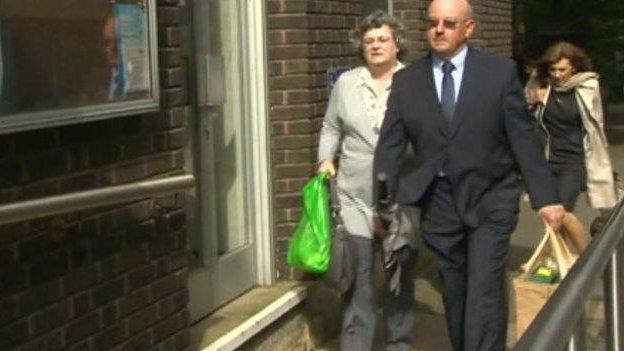
Parents of L/Cpl Roberts, Kelvin and Margaret Roberts, are at the inquest in Solihull
- Published1 June 2015
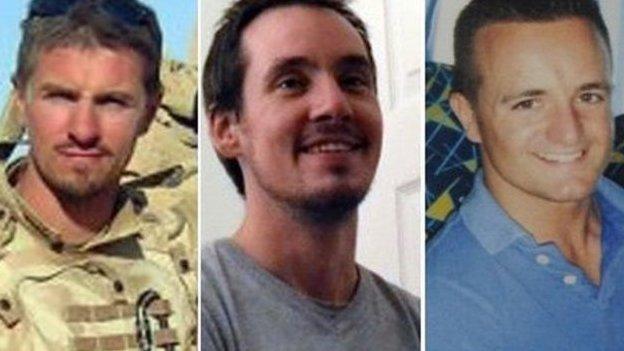
- Published16 September 2014
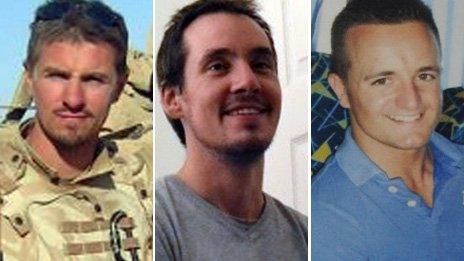
- Published1 July 2014

- Published3 September 2013
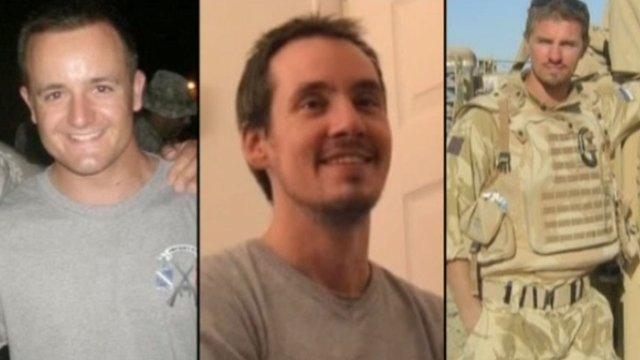
- Published3 September 2013

- Published5 September 2014
